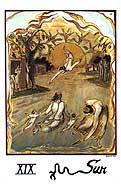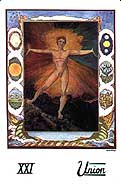…and the girls we once were float down the River to time and go under. Drowned, we all assume.
But then again…lots of unexplained, feminine looking, sword brandishing hands emerging from the misty waters in these stories…had to have come from somewhere, originally…it’s not as though they ever found the bodies…dead is not always so very dead in faery tales…
Strange dreams and disrupted R.E.M. Sleep as a direct result of bizarre Jungian reading material…
Found a copy of a book I read when I was 17 or thereabouts. I remember the gist of it, but none of the actual story.
Forgot what an esoteric MythoLiterary Geek I used to be…
I asked for an Oxford Unabridged dictionary for Christmas when I was 15 and improvised a TV Tray podium for it and the purloined single volume patent leather bound Complete Works of Shakespeare that I had snuck off the family reference shelf to read for fun in moments of idle brooding.
I used to keep a photocopied black and white portrait of Percy Shelley in my notebook the way most teenage girls pin up bubblegum idols. Ask Lizzie. Lizzie was way more Lord Byron. Coincidentally, or maybe notsomuch, Bowie around that time did a short film for the “Blue Jean” extended video in which he played a character called “Screaming Lord Byron.”
The fish ate Shelley’s face. That’s how he died, or rather he drowned in Italy, but by the time they found his body the fish had eaten his face. It seemed important to us at the time, but of course by then he’d have been long dead anyway…







